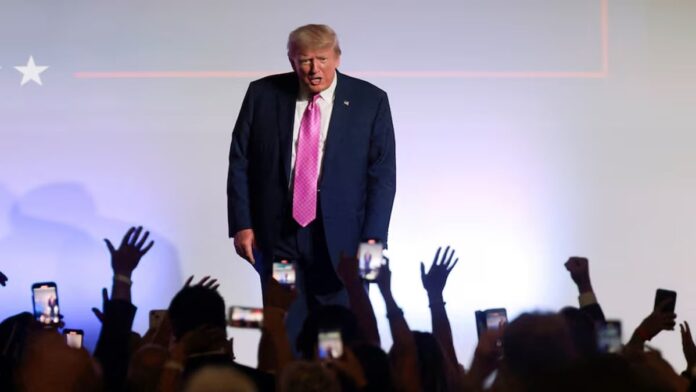Indian equities on Tuesday capitulated to worries over possible US trade tariffs and poor corporate earnings in a crash that saw benchmarks plummet and left investors poorer by a Rs 7.52 lakh crore. Investors took risk off the table, spooked by US President Donald Trump’s idea of universal tariffs and the announcements of tariff plans for Mexico and Canada.
The BSE Sensex plummeted by 1,235.08 points to end the day at a more than 7-month low of 75,838.36 while the broader Nifty closed the session at 23,024.65, down 320.10 points.
Also ReadMarket Trumped! Sensex nosedives 1,235 points, investors lose Rs 7 lakh crore in a single session
This is the first time the Nifty has fallen below the 23,000 mark in intra-day trade since June 7, 2024. Both benchmarks are now about 12% off their record highs, achieved in late September last year. NSE’s volatility index, the India VIX, rose nearly 4% on Tuesday and closed above 17 for the first time in over five months, reflecting the heightened nervousness among investors. The rout in the market was broad-based with the BSE Midcap and BSE Smallcap indices plunging nearly 2% each. The market breadth was decisively negative with 2,785 stocks declining against 1,189 advancing.
The rupee, meanwhile, shed much of its early gains to close largely unchanged at 86.59.
The fall in India’s stock markets has been partly due to relentless selling by foreign portfolio investors (FPI) who have offloaded equities worth over $6 billion in January so far, including Tuesday’s sell-off of $648 million.
FPIs have been of the view that India’s markets are over-valued and have moved money out at a time when the rupee has depreciated sharply. While local institutions have supported the markets with purchases of a net Rs 57,189 crore ($6.63 billion) in January, buoyed by strong retail flows into mutual funds, that hasn’t been enough to hold up stocks. Poor corporate earnings, both in the September quarter and so far in the December quarter, have prompted analysts to pare earnings estimates. The soft macro-economic environment, characterised by slow investments and weak consumer demand has added to the Street’s worries.
In Asia, Tokyo and Hong Kong ended higher on Tuesday while Shanghai and Seoul ended the session flat.
» Read More


